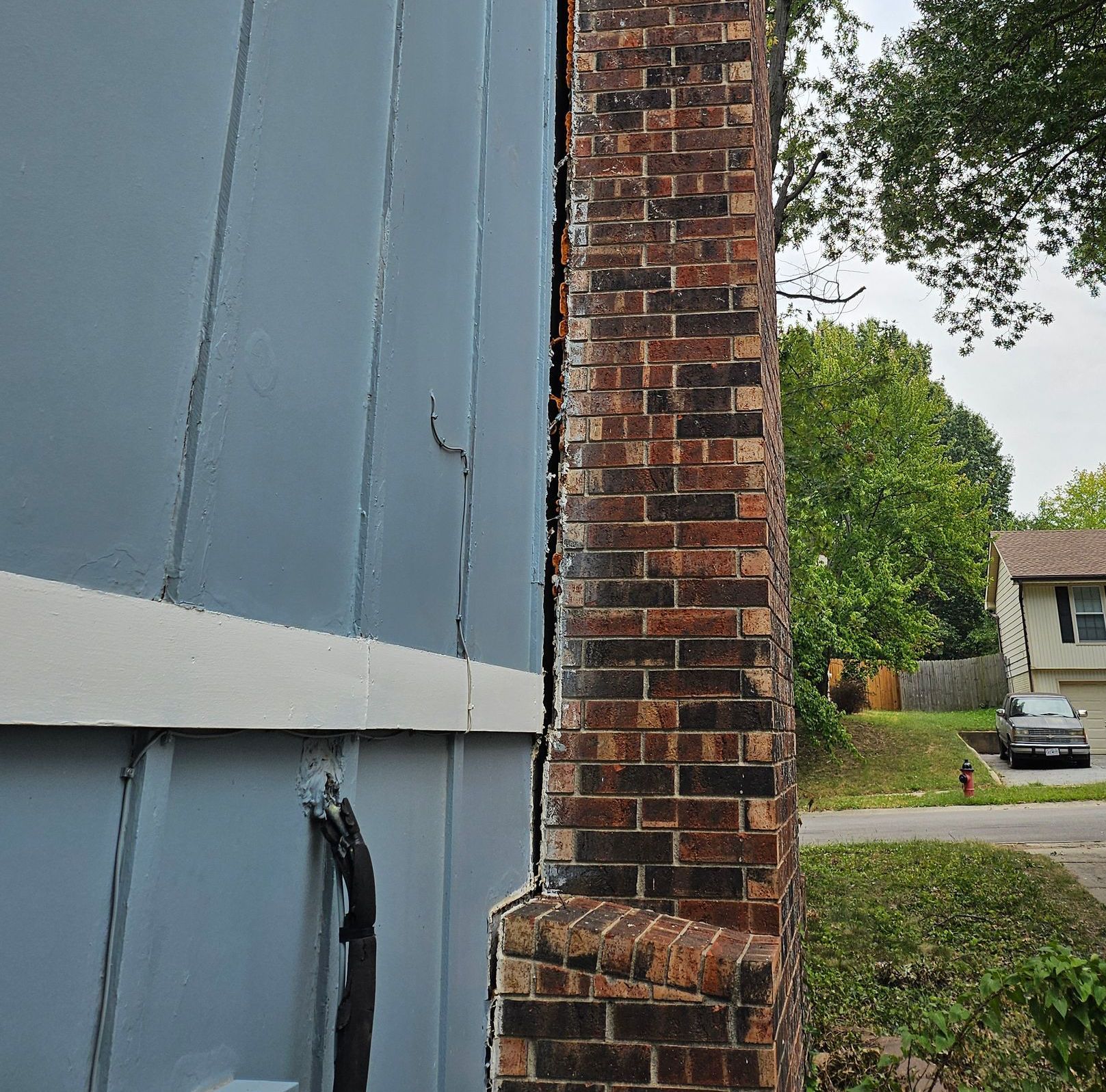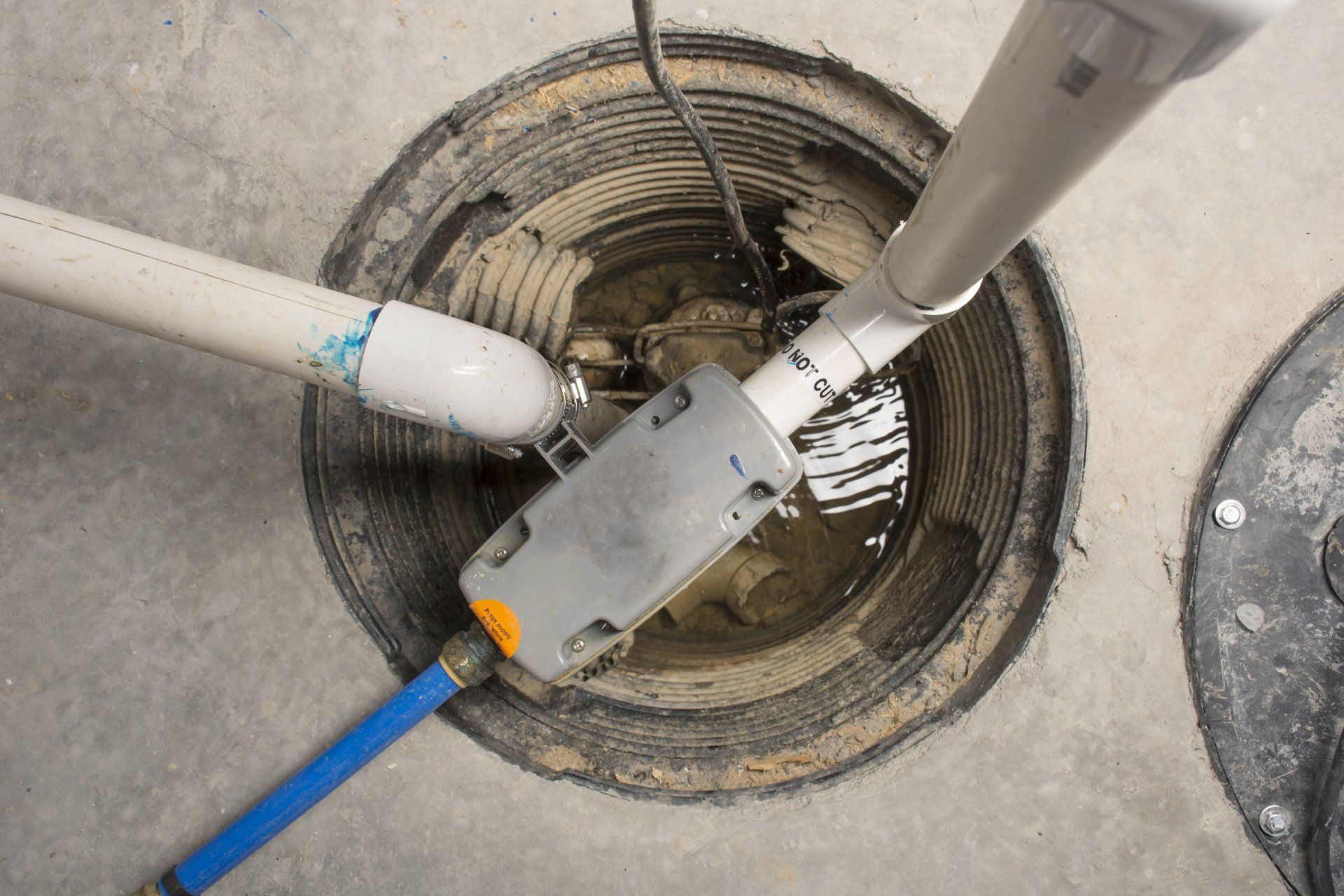Can a Leaning Chimney Impact Your Home’s Foundation?
How Does a Leaning Chimney Impact on Home’s Foundation?

What the big deal with having a leaning chimney?
A leaning chimney is a lot more than an aesthetic issue. It can be an indication of serious structural problems or even a threat to your home’s foundation. A leaning chimney issue may seem like a nothing issue, but if you ignore it, it can lead to major structural problems, including some with your home's foundation.
These problems can include foundation damage, cracked walls, roofline instability, water leakage, uneven weight distribution, and the risk of chimney collapse. To keep your home safe and stable, it’s essential to know the impact of leaning chimneys on your home’s foundation, AND to know who to call and when!
7 Threats of a Leaning Chimney
A leaning chimney can pose significant threats not only to itself but to your home foundation and surroundings too. Experts at PierMagic have listed some notable consequences of a leaning chimney that you should be aware of:
1. Structural Risks
When the chimney leans, it puts the weight distribution on the foundation unevenly which causes cracks and fractures in walls and floors. The chimney might also pull away from the house and destabilize the adjoining walls and ceilings. Due to that, here are some potential impacts you may experience:
- Foundation Damage: Fractures or shifting that occur when the foundation is under uneven pressure weaken the base of your home.
- Wall Cracks: Visible cracks may be caused in adjacent walls, which can expand and cause structural failure as the chimney pulls away.
- Roofline Instability: A detached chimney can ruin the roof line by introducing gaps that let in the weather elements to the structure.
- Collapse Risks: If the chimney lean becomes serious enough, the chimney can collapse altogether. It damages nearby structures and puts occupants in danger.
2. Secondary Damage
A leaning chimney does not only affect the foundation area; but it can also affect other areas of your entire home. This type of damage may not be immediately visible but can rapidly worsen if left unaddressed. You can experience:
- Misaligned Frames: Force shifting from the chimney can warp or stick door and window frames nearby, rendering them almost impossible to use.
- Plaster and Drywall Cracks: As the structure shifts the internal walls near the chimney can develop hairline cracks or large fractures.
- Uneven Floors: This added stress on the foundation could cause sloping or buckling floors and these could be dangerous and expensive to repair.
3. Water Damage Risks
A leaning chimney develops weak points in your home's water defense system. Problems arise when the chimney and house are separated and a direct pathway for moisture intrusion into the house. For instance, these are the common consequences that may happen:
- Moisture Intrusion: Rainwater can even travel through cracks and gaps, and can damage insulation, drywall, and wooden beams.
- Mold Growth: Mold can grow rapidly when the dampness is persistent. It can cause health problems for those residing in the building and can affect much of the building's interior.
- Frost Heaving: Water in the foundation or soil can also freeze and expand, worsening the tilt of a chimney and injuring the structure around it.
4. Worsened Soil Erosion
Leaning chimneys can make the soil around the foundation heavier, which can lead to soil erosion. This can create a cycle where the ground keeps getting weaker and more unstable. Over time, the problem can be worse with poor drainage and compacted soil.
- Erosion: Soil will wash away or get compacted as you lose the ability to support your foundation and chimney.
- Drainage Issues: Gutters of downspouts near a chimney if the water falls to the ground can speed up soil erosion.
- Foundation Settling: Uncompacted soil that has eroded or compacted causes the foundation to settle unevenly, so the lean of the chimney increases.
5. Safety Concerns
Beyond the structural problems, a leaning chimney creates a very dangerous situation for your family and property. Even there is a higher risk of damage to your home and injury to those inside if the chimney isn't fixed.
- Falling Debris: The chimney could be loose bricks or mortar that might fall on people, pets or vehicles parked nearby.
- Blockages: Chimney collapse might be a way of blocking key exit routes, even in case of emergencies like fires.
- Fire Hazard: Chimney's misaligned means that the smoke and gasses don't properly vent, which can mean a risk of fires.
6. Increased Heating Inefficiency
When a chimney leans, its function as a vent for smoke and gasses is impaired. This inefficiency will affect both your heating system and the quality of air within your house.
- Poor Venting: Smoke and harmful gasses such as carbon monoxide can back up into the home because of misalignment.
- Heat Loss: Warm air that escapes through the chimney gaps will lower heating efficiency. This wastes energy, raises your heating bills and can cause more damage to the chimney over time.
- Energy Costs: Owners may pay higher utility bills on account of inefficient heating systems.
7. Reduced Property Value
A leaning chimney makes your home less appealing to buyers. This usually means expensive repairs, further reducing the market value of your house.
- Buyer Hesitation: Structural instability can make the home a high-risk investment to potential buyers.
- Repair Costs: Chimney and foundation repairs can both scare off buyers and depress prices.
- Inspection Failures: On building inspections, homes with a leaning chimney may fail, or even delay or derail the closing process.
Common Causes for a Leaning Chimney
Before you fix or prevent a leaning chimney, it’s important to understand what causes it. As with any other structural problem, chimneys do not just wake up one day and decide to tilt. Rather, several factors might contribute to this problematic situation.
1. Settling or Shifting the Foundation
Settling or shifting foundations is one of the primary reasons for a leaning chimney. Over time, the foundation of a home can move due to natural settling or external forces, such as soil movement, placing uneven pressure on the chimney.
2. Poor Construction
Poor Construction can also lead to early chimney leaning. Inadequate reinforcement or lack of proper support structures during building weakens the chimney. Insufficient materials or improper weight distribution often exacerbate the issue over time.
3. Excessive Vibrations
Excessive Vibrations caused by nearby heavy machinery or high traffic can slowly compromise the chimney’s stability. Prolonged exposure to vibrations may result in cracks and tilting of the structure.
A leaning chimney is an indicator of the underlying structural problems that can threaten your home's safety and value. It is easier to solve the problem before it worsens, and expensive compensation is required.
It is important to inspect your home through professionals and keep up with regular maintenance. For instance, you can contact our
specialists and schedule an inspection to figure out any issues early and prevent bigger problems. It is essential to keep your home safe and secure for everyone.




